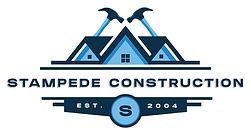What To Do Before, During, And After A Hurricane Or Tropical Storm
- Goliath Exteriors

- Mar 21, 2022
- 2 min read
Hurricanes and other tropical storms are dangerous. They bring heavy rains, flooding, high winds, and tornadoes that can damage buildings and cause injuries or death.
Georgia is a coastal state, making it hurricane-prone. Preparing for hurricanes and knowing precisely what to do is crucial to protecting your property and keeping you and your family safe.
If you live in Atlanta and other cities in Georgia, here’s what to do before, during, and after a hurricane.

Before a Hurricane
Prepare a survival kit filled with essential supplies that’ll last at least 72 hours for each person.
Stay informed by monitoring reports on radio and TV stations, social media, hurricane and weather alert applications on your smartphone, NOAA weather radios, Georgia Emergency Management & Homeland Security Agency, and other information resources.
Establish a communication plan with your family. If you’re not together when the storm hits, you want to know how to contact one another and where to meet.
Turn your refrigerator settings to the coldest to prevent food spoilage.
Fill the gas tank of your car in case you have to evacuate.
The wind can blow away outdoor furniture, decorations, and garbage cans—plan to bring them in.
Fill large containers with water. Keep drinking water too.
Evacuate if you’ve been directed to do so, live in a mobile home or a high-rise, or live near a water body.
During a Hurricane
Monitor live reports on the radio, TV, or internet, if available.
Secure your home by closing all entry points such as windows and doors. Stay away from windows, too, as flying glass can cause injuries.
Turn off propane tanks and utilities if instructed to do so.
Do not use a generator inside your home if power goes out to avoid carbon monoxide poisoning. Your generators should be at least 20 ft away from your home. Avoid using candles, too, as they are a fire risk. Use a flashlight.
After a Hurricane
Local authorities may be too busy to tell you what to do. Get updates from radio, TV, internet for official instructions.
Floodwaters may be contaminated or electrically charged. If you can, do not enter floodwaters. If you’re trapped in your car in rising water, find ways to get out and move to higher ground.
If you never left home and power returns, avoid turning on all major appliances at once. It’s best to start them gradually to prevent damage to all.
Do not use wet electrical or gas appliances.
Watch out for downed power lines to avoid electrocution.
Avoid rushing home until the authorities certify that it’s safe. Don’t forget to communicate with family and friends to make sure they are secure.
If there’s damage to your home, begin repairs as soon as possible to prevent mold by hiring an Atlanta residential contractor.





